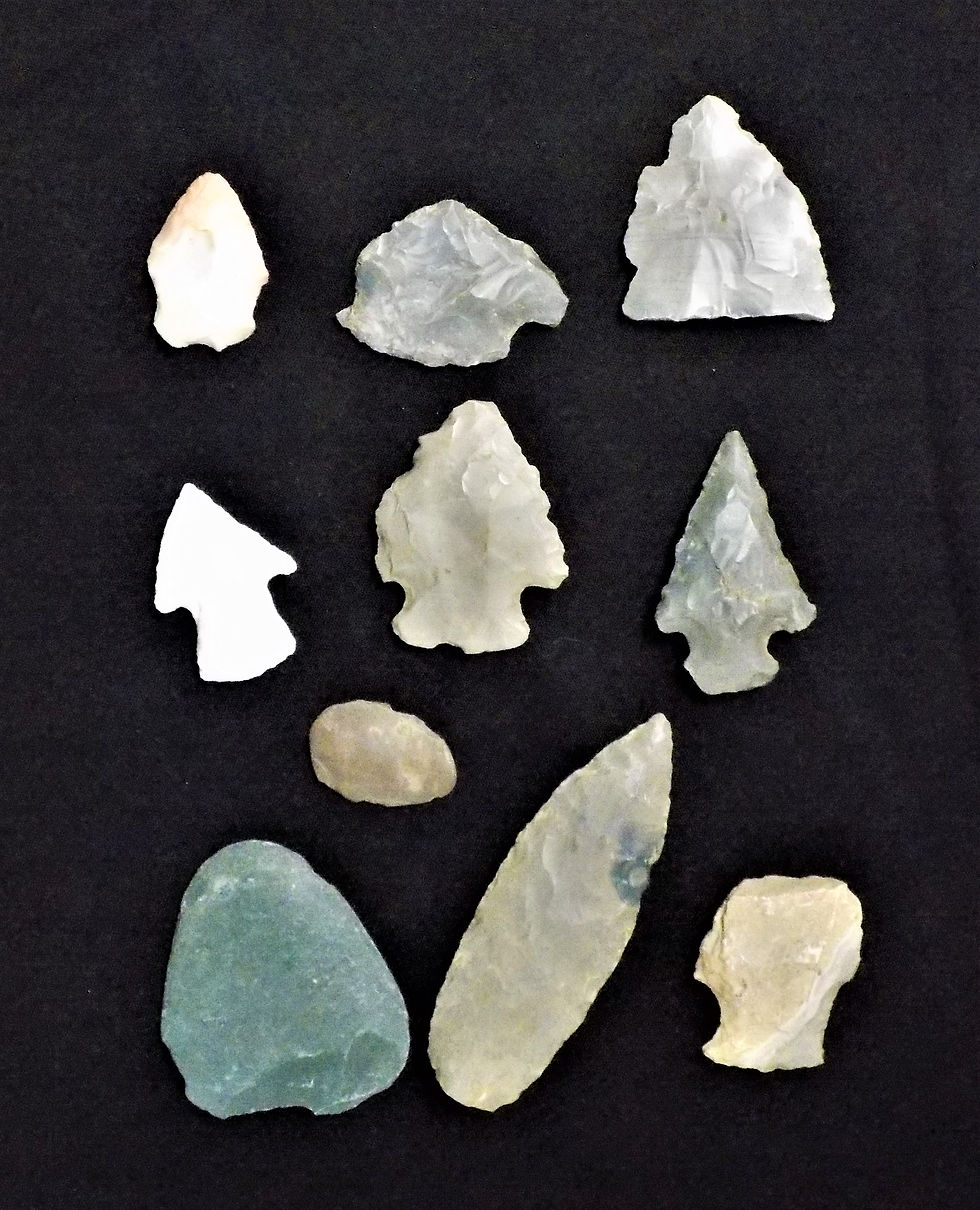Political Dispute between Dr. Anderson and A. Lincoln in Lawrenceville
- Lawrence Lore

- Jan 30, 2024
- 3 min read

The Lawrence County Historical Society and the Illinois State Historical Society erected a historical marker on the north side of the Courthouse lawn between 11th Street and 12th Street in Lawrenceville, on October 24, 1970 to commemorate a campaign event between Abraham Lincoln of Springfield and Dr. William G. Anderson of Lawrenceville in 1840. Actually, it was almost cause for a duel, according to later historians. On that day, October 28, 1840, the two men became involved in an argument over the 1840 Presidential election between William Henry Harrison on the Whig ticket and President Martin van Buren on the Democrat ticket.
Abraham Lincoln was a Whig candidate for one of five Illinois electors at the upcoming Presidential Electoral College. He was also a statewide leader of the Whigs and had been elected in August, 1840, to his fourth term as a Representative in the Illinois General Assembly.
At Lawrenceville, Lincoln was finishing a campaign swing through several counties in Southern Illinois, debating Judge Isaac P. Walker of Charleston, a Democrat electoral candidate, at each stop. He stayed in Lawrenceville until after the election and was paid by the State of Illinois to carry the Lawrence County vote totals to Springfield.
William G. Anderson was a medical doctor and a prominent leader of the Democrat party in Lawrence County locating here in 1827. He was born in Kentucky about 1808, and married his wife Emily, probably in Kentucky. He was a great hunter often taking his hounds with him when riding through the country on calls. If the hounds hit a hot trail, the patients often had a prolonged wait before he arrived, according to a History of Lawrence County Physicians, written by Tom Kirkwood. Being a rough and ready individual, Anderson apparently enjoyed a battle. He and an adversary once fought a duel using pitch forks for weapons.
Anderson later resided in Wabash County, Illinois, where he was elected to his first term as Representative in the Illinois General Assembly, 1832-1834. After losing an election attempt for State Representative in 1840, he returned to serve two terms as Representative from Lawrence County, 1842--1846. In the late 1840’s he moved to Nashville, Davidson County, Tennessee, where he became a wealthy land- and slave-owner.
The “difficulty” between Lincoln and Anderson occurred during the final, last hectic days of the presidential campaign of 1840. Lincoln was canvassing the southern counties of Illinois on behalf of William Henry Harrison and the Whig Party. On October 28, Lincoln gave a speech at Lawrenceville. Anderson “repeatedly interrupted” Lincoln, contending that the orator was “falsifying the acts and record of the Democratic party.” Lincoln’s retort was apparently testy enough to prompt Anderson to write a sharply-worded letter on October 30. Lincoln diffused the situation with a conciliatory letter.
To: A Lincoln, Esqr.
‘Dear Sir:
‘On our first meeting on Wednesday last, a difficulty in words ensued between us, which I deem it is my duty to notice further. I think you was the aggressor. Your words imported insult; and whether you meant them as such is for you to say. You will therefore please inform me on this point. And if you designed to offend me. Please communicate to me your present feelings on the subject, and whether you persist in the stand you took.’ ‘Your obedient Servant.' (Wm G Anderson)
‘Lawrenceville, Oct. 31, 1840.
To: ‘W. G. Anderson,
‘Dear Sir: Your note of yesterday is received. In the difficulty between us of which you speak you say you think I was the aggressor; I do not think I was. You say my ‘words imported insult—’ I meant them as a fair set off to your own statement, and not otherwise; and in that light alone I now wish you to understand them. You ask for my ‘present feelings on the subject.’ I entertain no unkind feeling to you, and none of any sort upon the subject, except a sincere regret that I permitted myself to get into any such altercation. Yours etc. ‘A. Lincoln’
What Lincoln said to William G. Anderson that so insulted and outraged him will never be known.
Editor's Note: The above post was summarized from a 22- page in- depth “dissertation” about this subject written by John King, who delved into the genealogy of Lawrence County resident Dr. Anderson, and inaccuracies in later histories of the event. If you would like to read the entire paper, please contact john.m.king1947@gmail.com

